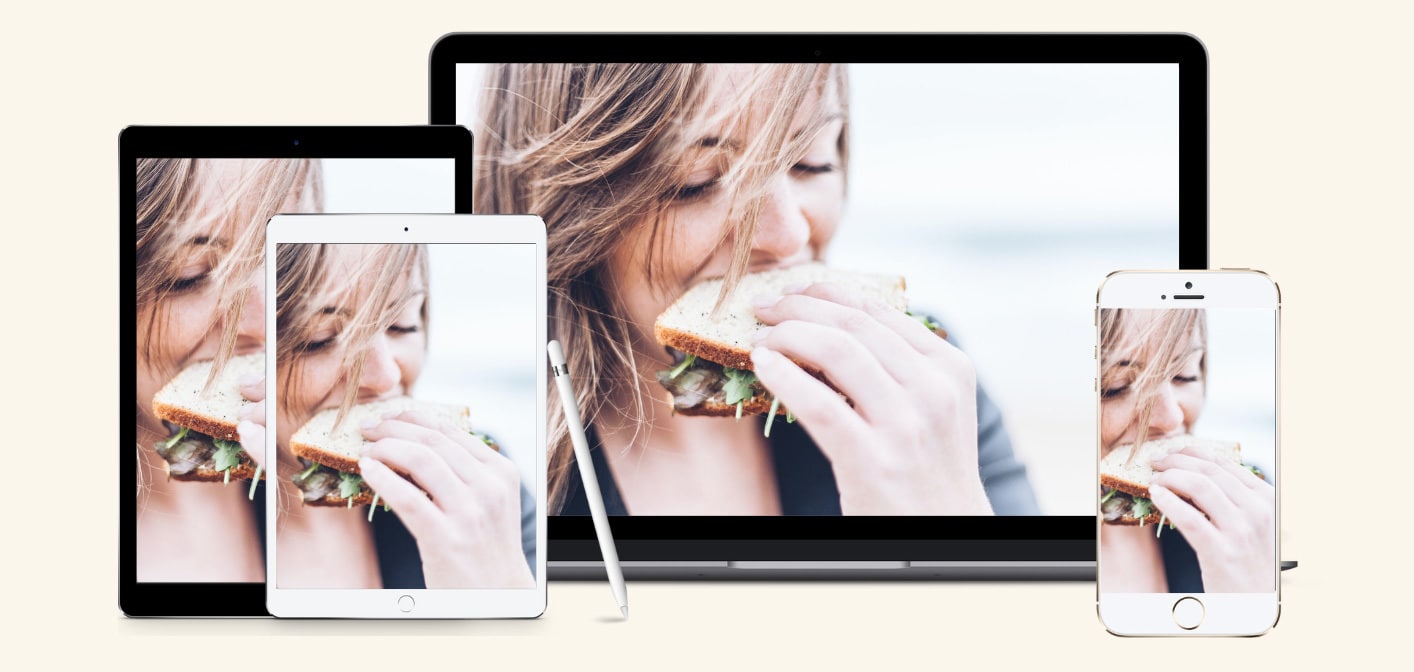Have you ever tried to cut back your sugar intake? If you find yourself unable to stay away from the sweet stuff and thinking “I can’t stop eating sugar”, you are not alone.
I am sure many of us know that intense desire to eat a specific food despite not feeling physically hungry. There are a number of reasons that make stopping eating sugar difficult. I have already delved into why you don’t need to stop eating sugar to improve your health in another post. Whilst sugar is fine to include in your diet, feeling out of control around it is not fun. In this article, I am going to share with you my eight top tips to help you get to grips with sugar cravings and figure out “why can’t I stop eating sugar”.
Note: many of my clients feel they are binge eating on sugar or other foods, when in fact they are eating a fairy normal amount of food. A binge can be very subjective. Binge eating is the consumption of large quantities of food in a very short period of time. This could be more eating a higher volume of food than the average person would be able to consume in one day, in a very short space of time. It’s quite often planned and ritualised.
1) Get curious about your cravings
Can you pick up any specific patterns to when you find yourself wanting sugary foods. Is there a particular time of day when you find yourself asking “why can’t I stop eating chocolate”? For example, if it’s chocolate, what type of chocolate do you crave? Is there a time of day that this strikes most? Naming a brand and flavour, and identifying the times of day that you find most difficult may come in handy over the next few paragraphs. If you’re not sure, you could try keeping a little journal to identify patterns.
2) Tune in with your hunger
I quite often hear that cravings for particular foods or binge eating episodes occur at 3-4pm in the afternoon. When I hear a history of what a client’s eaten that day (perhaps cereal/porridge for breakfast, and a salad for lunch) they have often not eaten enough. It’s no wonder they are hungry and craving sugar. Check in with what you’ve eaten throughout the day and allow yourself a proper snack. That could be biscuits and a yoghurt, or a dash of Nutella on toast with a banana if you are looking for that sugar hit. Combining a little sugar with some more nutrient dense food can be a good balance. Forbidding yourself from eating the sugary food can fuel cravings further, leading you to question “why can’t I stop eating sugar”.


3) Stop forbidding food and give yourself unconditional permission to eat ALL foods
It’s pretty hard to sell the idea of ‘eat what you want’ when you’re probably thinking – “that’s exactly what brought me here in the first place”. However, the alternative approach of restrictive diets and deprivation probably hasn’t worked either.
Feeling out of control around sugar (or any food you are restricting) is a natural reaction to deprivation/restriction. Foods are not good or bad. You are not a good person if you eat lettuce and a bad person if you eat chocolate. They are all just food. Neutralising your language around these foods can it down from its pedestal. If I say to you “don’t think of a pink elephant”, what pops into your head? It’s the same with food. If we tell ourselves we can’t have something then we end up wanting it more and this is a scientifically proven concept!
Write out a list of foods that you forbid yourself to eat and start experimenting with them. Take one at a time a few days apart. As you eating your forbidden food, slow down, savour it and tune into how much you need to feel satisfied.
As you become more comfortable with this practice of eating your ‘forbidden’ food, the foods become more ordinary and truly allowed. It’s a process called habituation. The food no longer has any moral value and doesn’t have control over you.
4) Identify emotional triggers
A lot of us use food to quash unpleasant emotions that we’d rather not feel. This is normal to some extent, but when food becomes our only coping mechanism it often doesn’t feel great. Sugar-rich foods can be particularly comforting. If you find yourself wanting to dive into a tub of ice-cream regularly when you know you’re not physically hungry, perhaps your body is trying to tell you it needs something else. If emotional eating is something you struggle with then an important part of figuring out how to stop bingeing on sweets will be learning to cope with these emotions without food. You can get more in-depth tips on emotional eating in this article.

5) Eat regular, satisfying meals and snacks
Often the answer to “why do I binge on sugar?” is because of not eating regularly. When we get overly hungry, our bodies are biologically more likely to crave high sugar foods to get the quick energy hit they need. Eating every 3-5 hours, with 3 meals and 2-3 snacks in a day is what many people find works for them. It’s important to recognise what works best for you and to tune into your own hunger cues.
Some people struggle to initially hear hunger and fullness cues, so regular eating can help to “get the machine churning” again. This can create a rhythm from which you can tune into those signals again.
As well as physically filling you up, your meals and snacks need to mentally and physically satisfy you so that you do not feel restricted (remember: restriction leads to bingeing). This means choosing foods that we crave or that “hum” to us. To make sure we get physical satisfaction from food, it’s important to choose options with “staying power”. These are usually those which include a source of each fat, protein, carbohydrate, and fibre.
6) Pack your snacks
Of course, the office chocolates or vending machine look more appealing than the brown squashed banana or bruised apple at the bottom of your bag. To combat this, pack tasty and delicious snacks that you look forward to eating. This way may be less likely to have to resort to the vending machine come 3pm.
You could try:
– oat cakes with nut butter and squashed berries or banana
– leftover dinner!
– cream cheese, tomatoes and black pepper on some delicious toasted bread
– yoghurt with fruit
– muesli/granola bar with fruit
– peanut butter and banana
7) Get on top of your sleep
Tiredness makes cravings more intense, especially for fatty and sugary food. Your body is less likely to be giving out accurate hunger signals when tired. So stick to eating regularly, bite the bullet and get yourself into bed early! 7-9 hours per night is optimal. Any less than that and your hunger signals will likely be out-of-whack. If you’re keen to dive into this more, the book “Why We Sleep” by Matthew Walker is excellent.
In summary
When you find yourself asking “why can’t I stop eating sugar”, it can be your bodies way of telling you that it needs something. It could be hungry, over-restricted, feeling an intense emotion, not fed/watered or had enough sleep. Perhaps it needs a little self-love. Tune into your body’s signals, reflect and try to learn from them so you are able to give your body what it truly desires.
For more on how to stop binge eating sugar, how to stop food obsession, emotional eating, stress eating, yo-yo dieting, and how to start intuitive eating check out my FREE download. This will guide you through some of the first steps to support you through your food problems. You will learn how to stop food obsession, and how to start intuitive eating.






